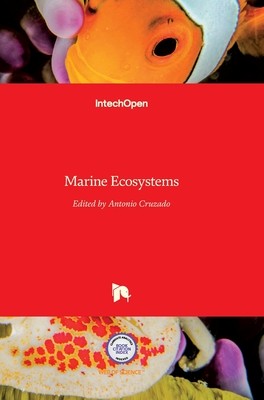
- Išsiųsime per 10–14 d.d.
- Leidėjas: IntechOpen
- Metai: 2012
- Puslapiai: 326
- ISBN-10: 9535101765
- ISBN-13: 9789535101765
- Formatas: 17 x 24.4 x 1.9 cm, kieti viršeliai
- Kalba: Anglų
Marine Ecosystems + nemokamas atvežimas! | knygos.lt
Atsiliepimai
Aprašymas
Marine ecosystems, a very wide topic, includes many different processes, groups of organisms and geographical peculiarities. The objective of this book is to present various topics of great importance for understanding the marine ecosystems, what they are, how they work and how we can model them in order to forecast their behaviour under changing conditions. They have been thoroughly reviewed and accepted for publication. The chapters cover aspects such as: Threats to ultraoligotrophic marine ecosystems (Ch. 1); Modelling the pelagic ecosystem dynamics: the NW Mediterranean (Ch. 2); The marine ecosystem of the Sub-antarctic, Prince Edward Islands (Ch. 3); Meiofauna as a tool for marine ecosystem biomonitoring (Ch. 4); Chemical interactions in Antarctic marine benthic ecosystems (Ch. 5); An Interdisciplinary Approach on Erosion Mitigation for Coral Reef Protection- A Case Study from the Eastern Caribbean (Ch. 6); A revisit to the evolution and ecophysiology of the Labyrinthulomycetes (Ch. 7); Seabed mapping and marine spatial planning: a case-study from a Swedish marine protected area (Ch. 8); Management strategies to limit the impact of bottom trawling on VMEs in the High Seas of the SW Atlantic (Ch. 9); Hydrocarbon contamination and the swimming behavior of the estuarine copepod Eurytemora affinis (Ch. 10), and Interactions between marine ecosystems and tourism on the Adriatic and Mediterranean (Ch. 11).
- Leidėjas: IntechOpen
- Metai: 2012
- Puslapiai: 326
- ISBN-10: 9535101765
- ISBN-13: 9789535101765
- Formatas: 17 x 24.4 x 1.9 cm, kieti viršeliai
- Kalba: Anglų




Atsiliepimai